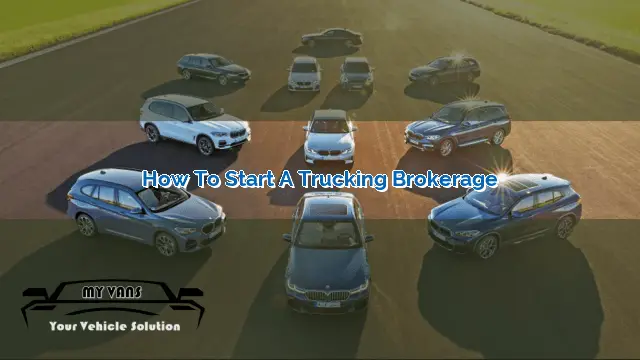
Starting a trucking brokerage is a great business idea for those who are interested in the transportation industry. It can be a profitable venture if done correctly. However, it requires a significant amount of planning, research, and hard work. In this article, we will discuss the steps you need to take to start your own trucking brokerage.
Step 1: Research and Learn
The first step to starting a trucking brokerage is to research and learn as much as possible about the industry. You need to understand the different types of trucking services, the regulations involved, and the market demand. Knowing your potential customers and competitors is also crucial. You can learn through books, online resources, or by talking to industry experts.
Step 2: Create a Business Plan
Once you have a good understanding of the industry, you can start creating a business plan. Your business plan should include your target market, competition analysis, marketing strategy, financial projections, and operational plan. It should serve as a roadmap for your business and help you make informed decisions.
Step 3: Obtain Necessary Licenses and Permits
Before you can start operating your trucking brokerage, you need to obtain the necessary licenses and permits. The requirements vary depending on your location, but you may need a freight broker license, a motor carrier authority number, and a surety bond. Make sure to check with the relevant authorities to ensure you have all the necessary permits.
Step 4: Build Your Network
Building a network is essential for the success of your trucking brokerage. You need to establish relationships with shippers and carriers to secure business. Attend networking events, conferences, and trade shows to meet potential clients and partners. You can also join industry associations to stay updated on the latest trends and regulations.
Step 5: Develop Your Brand
Developing a strong brand is crucial for the success of your trucking brokerage. Your brand should reflect your values and differentiate you from your competitors. Create a professional website, business cards, and other marketing materials that represent your brand. You can also use social media to promote your business and connect with potential clients.
Step 6: Hire Your Team
You may need to hire a team to help you run your trucking brokerage. You need people who have experience in the industry and can handle different aspects of the business, such as sales, operations, and finance. Make sure to hire the right people who share your vision and can contribute to the growth of your business.
Step 7: Start Marketing and Selling
Once you have everything in place, it’s time to start marketing and selling your services. Use your network to reach out to potential clients and partners. You can also advertise online, attend trade shows, or use other marketing channels to promote your business. Make sure to have a sales process in place and track your results to measure your success.
Step 8: Monitor Your Business Performance
Monitoring your business performance is essential to ensure that you are on track to achieving your goals. Keep track of your financials, customer satisfaction, and employee performance. Use this data to make informed decisions and adjust your strategy if necessary.
Step 9: Keep Learning and Improving
The transportation industry is constantly evolving, and you need to keep up with the latest trends and regulations. Attend industry conferences, read industry publications, and network with other professionals to stay updated. Use this knowledge to improve your services and grow your business.
Step 10: Stay Compliant
Finally, it’s essential to stay compliant with the regulations involved in the trucking industry. Keep track of changes in regulations and ensure that you are always following the rules. This will help you avoid legal issues and maintain a good reputation in the industry.
Starting a trucking brokerage can be a rewarding business venture if done correctly. By following these steps, you can start your own trucking brokerage and achieve success in the transportation industry.
 MyVans Your Vehicle Solution
MyVans Your Vehicle Solution